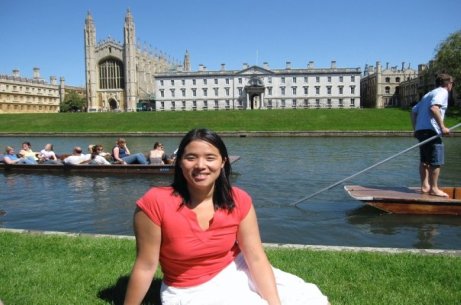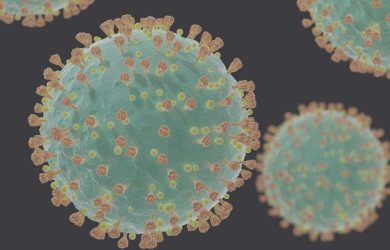
Liz Dzeng's research focuses on whether US doctors act in patients' best interests.
Liz Dzeng was working in a US hospital taking care of an 86-year-old woman dying of metastatic cancer. In line with the US health system, Liz, a doctor specialising in internal medicine, had to get permission from the woman’s husband about whether or not to resuscitate her if her heart stopped. Her husband, however, was senile and did not understand what was going on. “In the middle of the conversation with him, the woman started coding [dying] and I had to break her ribs during CPR. I felt that was ethically wrong and inhumane,” she says. “I felt it was not the right way to die.”
This and other similar experiences in the US medical system are at the root of her PhD in sociology at Cambridge. Her thesis focuses on whether or not doctors do what they think is in the best interests of their patients. “I am analysing what they think they should do in certain cases and what they actually do because of structural barriers in the system,” says Liz. This includes the need for doctors in the US to get patients’ or their proxies’ agreement that they should not resuscitate a patient who has no chance of surviving CPR, for instance, by giving them chest compressions or pumping them full of powerful drugs.
She adds: “It seems to me that there is something fundamentally wrong with a system that is ruled by a technological imperative to keep people alive, if only for a day longer. The decision about prolonging life is so emotive for patients’ families and so much guilt is attached to agreeing to pull the plug on a relative. They don’t always want that responsibility. I wondered if there might be a better balance between autonomy and doctors helping to make the best decisions about how to die?”
Liz [2007] grew up in Baltimore, Maryland in a fairly scientific family. Her father is a computer scientist and her younger brother is a biologist.
At school she was mainly focused on science and continued this interest through her undergraduate degree and masters before becoming increasingly drawn to social sciences. She did her undergraduate degree in biology and history, and a masters in chemical engineering at Stanford where she was involved in inventing and patenting a medical device to help heart attack victims.
Liz had always intended to go to medical school and returned to Baltimore to do so while also completing a masters in public health at Johns Hopkins University. While there, she was involved in a study published in the Lancet on mortality figures as a result of the US-led invasion of Iraq.
“It was my first glimpse into how epidemiology can influence world politics,” she says. The study led to President Bush being questioned about the mortality figures.
“It had a great influence on me and showed me how academics could have an advocacy role and how doctors had a responsibility in the public world,” she says.
At Johns Hopkins she travelled a lot and worked on a number of international projects, including a healthcare programme for North Korean refugees in China.
Liz then headed for Cambridge to do an MPhil in Development Studies supported by a Gates Cambridge scholarship. She calls it “the best year of my life”. She says: “The course was very interesting, but what makes Cambridge an unparallelled experience is the people who go there. The Gates community felt like a family and everyone had such great intellectual vitality.
Her thesis was based on the Iraq mortality study and focused on post-conflict health reconstruction in Iraq – how it could help the peace process and how the peace process could be used to promote health.
She returned to Baltimore to finish medical school and did an internal residency at Columbia which she describes as “life-changing”. She worked 80-hour weeks with shifts often lasting over 27 hours. She was thrust into a position where she was in charge of people’s lives. “If I made a wrong decision people could die,” she says. “It was very stressful and I was also thinking about the wider picture. I felt very frustrated by the hospital system. There were some things that didn’t make sense and didn’t seem to be in the best interests of the patient.”
She decided to apply to Cambridge again for a PhD. Partly this was because she really enjoyed her time at Cambridge and partly it was because she wanted a space where she could reflect and work on some of the issues that she had encountered as a resident.
One example involved the decision not to resuscitate. Liz says US doctors overtreat patients who are dying, providing treatments that might be futile at the expense of quality of care and comfort.
Another issue is the cost to the patient’s family of prolonging life using expensive medical technologies. “Tens of thousands of dollars are spent on aggressive care that does not provide any meaningful benefit,” says Liz. She adds that over 60% of bankruptcies in the US are caused by medical bills. “A quarter of Medicare spending is in the last six months of their lives,” she says.
She is comparing the system in the US with that in the UK, where doctors take more responsibility for end of life decisions.
Not content with just doing a PhD, Liz also has a clinical research fellowship at Johns Hopkins in general medicine. That means she has to spend half the year in Cambridge [during term time] and the other half in Baltimore where she also sees patients.












